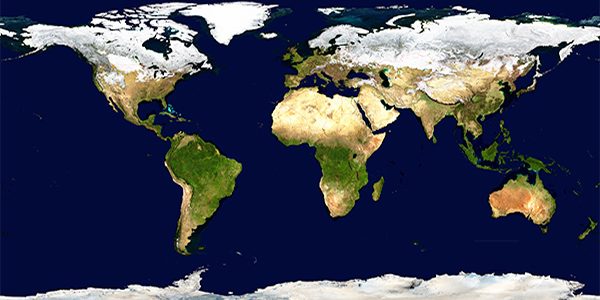
Read, contemplate, comment, discuss
USA

President Bush continues to scrap environmentally friendly laws and projects dating back to the 1950s. Bush has pushed for oil companies to exploit the Alaskan National Wildlife Reserve; cancelled laws banning new logging roads in national forests and pulled out of the Kyoto global warming agreement. He also refuses to join the World Criminal Court; considers the UN ineffective and irrelevant; has pulled out of nuclear missile accords and favours developing a new generation of nuclear bombs as well as the weaponization of space.
CANADA
Recent moves by the government and courts to loosen marijuana laws have raised concern here and in the U.S. Toronto police stopped laying charges for possessing small amounts of pot while politicians and the media debated turning pot possession into an offense punishable only by a fine. Many argue that courts and jails and police resources are being diverted from dealing with more serious crimes, and lifetime criminal records for minor pot offenders were unfair. A large majority of Canadians agree. Police forces are fighting the new proposals.
EUROPE
As the United States shuns several international treaties and institutions, the countries of Europe have been growing closing together. Most recently the people of the Czech Republic overwhelmingly voted to join the European Union (EU) and Latvia and Estonia will vote this fall. The EU has its own currency (the Euro) its own president and parliament and oversees many of the laws for nearly all of Europe. Currently made up of fifteen countries the EU is expanding eastward in May of 2004 adding 10 additional countries including Poland, Hungary, Bulgaria and Romania.
AFRICA
AIDS continues to have a massive impact on youth in the developing world but especially in Africa. Infection rates for 15-24 year-olds soar as high as 1 in 3 for young women in Botswana, and there are over 11 million children orphaned by AIDS. The impact of the disease on these societies is absolutely crushing, as it takes away the strongest and most productive age group (15-45) and puts a massive burden of health care costs on those free of the disease. In a very positive move, the U.S. government has promised $3 billion a year for five years to help fight the disease.
GERMANY
The 50-nation International Whaling Commission voted to strengthen its ban on hunting and killing whales. It has been called the most decisive move since the original ban on whaling in 1986. Norway (which ignores the ban), Iceland and Japan all wanted to have the ban dropped to allow them to kill more whales and export whale meat and blubber. The three whaling countries point out that the population of a common whale, the minke, has been increasing 7% a year and that a small hunt (while avoiding other endangered species) would barely dent their growing numbers.
ETHOPIA
Archaeologists here have discovered three 160,000 year-old skulls that appear to be very similar to modern humans. Some scientists claim the find supports the common theory that the human species developed fully in Africa and then spread out around to populate the world 200,000 to 100,000 years ago, outlasting or wiping out other species of manlike creatures, such as the Neanderthals. In a recent study of ancient human and Neanderthal DNA it was found that the Neanderthals made little or no contribution to the modern human gene pool.
MIDDLE EAST
Bloodshed continues here with peace between Israel and the Palestinians proving harder to achieve than Pres. Bush realized when he pushed his “roadmap” for a free Palestinian state. The situation is in a cycle of suicide bombs and Israeli military clamp-downs that have killed thousands in the last three years. There have been growing calls for UN peacekeepers as the only solution, an idea that Israel considers an insult. Meanwhile, the American forces in Iraq are under a similar threat as both Sunni and Shiite freedom fighters continue to attack and kill U.S. forces daily.
CHINA
After ten years of construction the largest hydroelectric dam project has entered its final phrase. The gates of the 630-foot high Three Gorges Dam have been closed and the mighty Yangtze River has been blocked to form a massive reservoir lake 600 km long. By the completion of the project in 2009 over 1.2 million people will have been resettled as the reservoir submerges villages, factories, farms and tombs. The Chinese plan is to create a huge electrical generation capability while at the same time controlling the flood-prone Yangtze River.

Comments are closed.